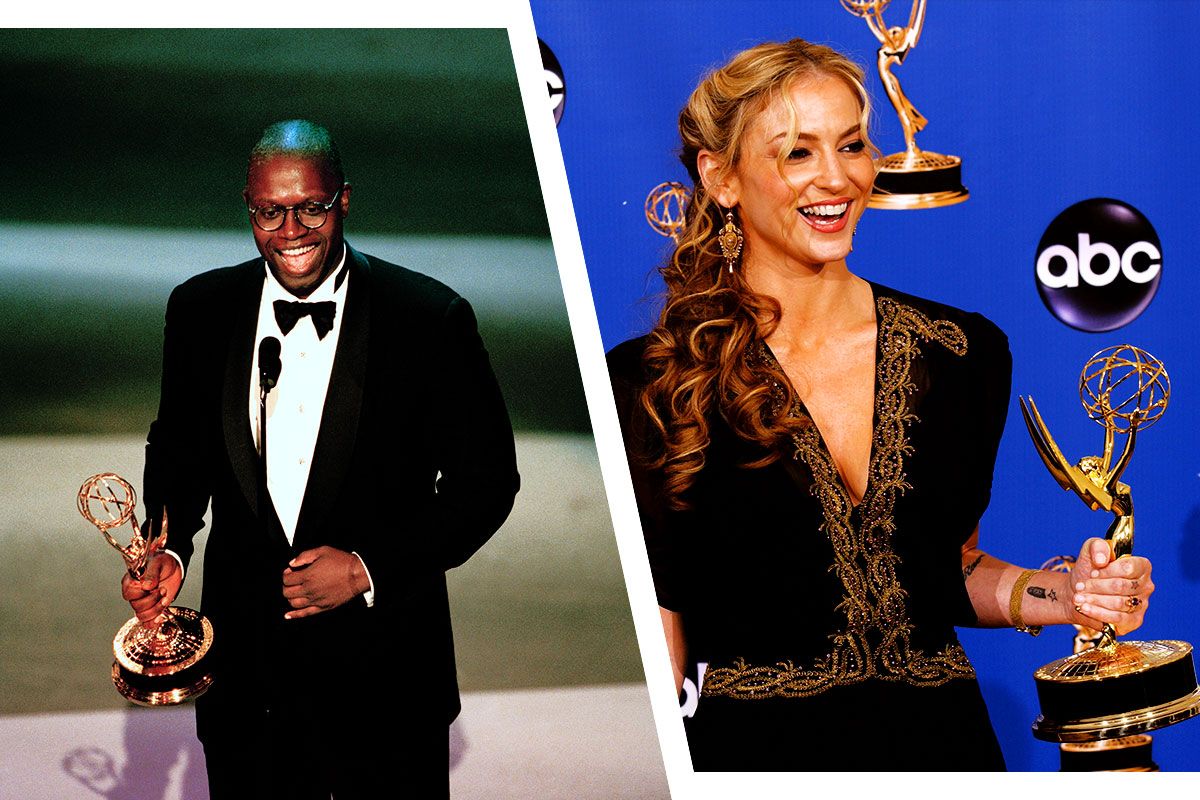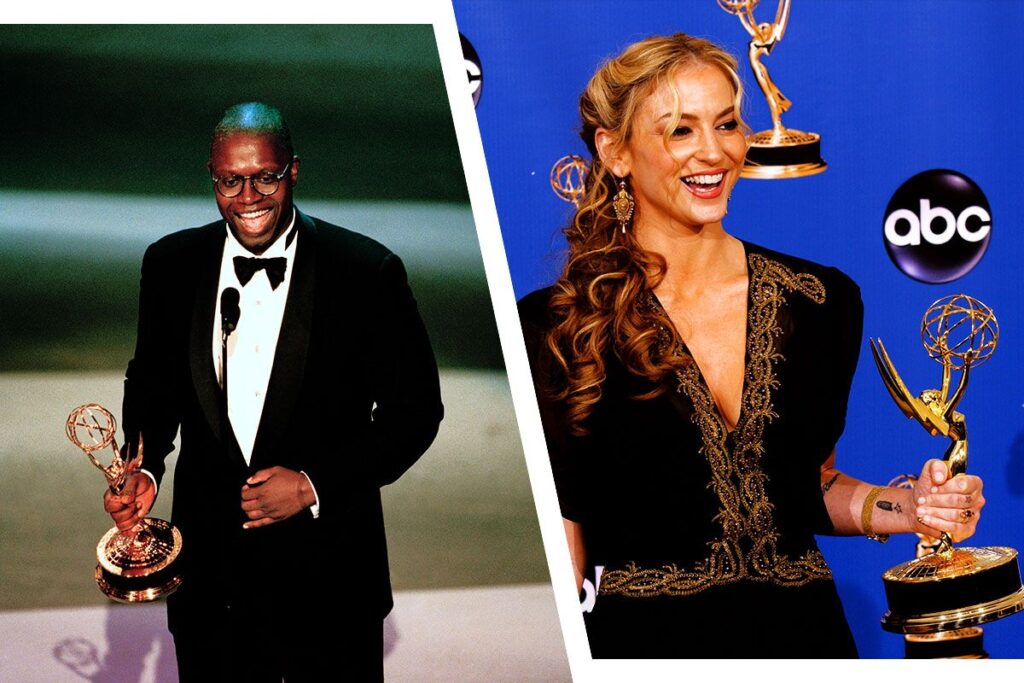
One Emmy tradition that populates the weeks between nominations and winner-round voting is the submission of episodes. While the writers, directors, and guest performers have already been nominated for specific episodes, the lead and supporting performers in Drama and Comedy submit specific episodes to be screened by Emmy voters after nominations are announced. This week, several Lead Actor in a Drama nominees released their submissions:
• Pedro Pascal submitted the Last of Us episode that flashes back to him admitting the truth of the season-one finale to Ellie.
• Adam Scott submitted the Severance season-two finale that featured Innie Mark and Outie Mark in a tense negotiation with each other.
• Noah Wyle submitted The Pitt’s season finale, a somewhat low-key dénouement to the dramatic Pittfest episodes.
From a strategic perspective, these submissions seem better for Scott and Pascal than they do Wyle, who is currently the front-runner. The Last of Us’s flashback episode is the season’s most satisfying from the angle of Joel and Ellie, the show’s strongest relationship. Scott is quite impressive in the Severance finale, and the Mark-on-Mark scene is a flashy piece of actor-y business that could hook some voters to his side. Meanwhile, Wyle declined to submit any of the episodes where Dr. Robby is playing more emotionally intense scenes. Paired with the fact that Severance led all shows this year with 27 nominations, this could signal a momentum shift toward Scott in the race …
Or it would if episode submissions mattered like they once did. Unfortunately, they haven’t for basically a decade. In 2015, the Emmys changed their voting procedures, ending the era of volunteer-based blue-ribbon panels of select Academy voters who had to watch all the submitted episodes before voting for the winners. Now, the entire peer group, i.e. all the actors, votes in the performance categories, and they don’t have to prove they watched the submitted episodes — or any episodes of the show, for that matter. In transferring power to the greater Emmy votership, the Television Academy made a change towards a more purely democratic system while simultaneously paving the way for more popular choices (Game of Thrones, for example) to dominate.
While the Emmys certainly played favorites during the episode-submission era (Kelsey Grammer won six times for Frasier, Dennis Franz got four for NYPD Blue), the blue-ribbon panels meant that an actor from a less broadly popular show could score an upset victory if their submission impressed the panelists enough. This was especially important during the era of network TV hegemony, when cable shows had niche audiences compared to the likes of ER and The West Wing. (Nowadays, with linear-TV erosion and network fragmentation utterly transforming what it means to be a hit, Emmy winners rely more heavily on buzz than broad viewership numbers.)
This is how you ended up with incredibly memorable wins like Andre Braugher for Homicide: Life on the Street in 1998, after he submitted an episode where his character breaks down in tears at the bedside of his police partner who’s been shot. This is how Michael Chiklis was able to score an upset win for FX’s The Shield at a time when basic cable was a nonentity at the Emmys. Sela Ward has two Emmys — for Sisters and Once and Again — because she was able to get Emmy panelists to watch her submissions alongside the likes of Murder She Wrote’s Angela Lansbury or The Sopranos’s Edie Falco. Supporting Actor/Actress winners during the panel days were peppered with character actors winning for smaller roles or less buzzy shows: Blythe Danner (Huff), Dianne Wiest (In Treatment), Željko Ivanek (Damages), Archie Panjabi (The Good Wife), and Margo Martindale (Justified).
It also made it so much more fun to talk about the Emmys back then! The shrewdness of episode submissions — and the armchair Emmy strategizing that followed — gave much more dimension to the acting races than the sheer popularity contests we get now. Would George Clooney finally win for ER after submitting the episode where Dr. Ross has to save a kid in a storm drain during a flood? Martin Sheen submitted the highly dramatic episode of The West Wing where President Bartlet steps aside while dealing with his daughter’s kidnapping — a formidable contender but ultimately no match for James Gandolfini submitting the volcanic “Whitecaps” episode of The Sopranos.
Submitting well meant long-awaited Emmy wins for the likes of Jennifer Aniston (the Friends episode where Rachel gives birth) and Drea de Matteo (“Long Term Parking”, where Adriana meets her harrowing Sopranos end). Supporting performers were able to submit two episodes apiece, so Bradley Whitford won for the one-two punch of The West Wing’s “In the Shadow of Two Gunmen” (where Josh Lyman gets shot) and “Noel” (where Josh Lyman experiences PTSD from the episode where he got shot).
Even more fun was talking about which actors submitted poorly. Jason Alexander famously never won an Emmy for Seinfeld, but he could have if he didn’t make two baffling submissions in 1995: “The Race,” where George is suspected of being a communist, and “The Gymnast,” where George eats an eclair out of the garbage can. This during a season when he could have submitted George having a comedy-of-manners freak-out over a big salad (“The Big Salad”) or melting down over being set up with a bald woman (“The Beard”). I get fired up thinking about this blunder 30 years later!
The blue-ribbon panels of course had their drawbacks. They were slanted toward older, retired Academy members (the ones who actually had the time to screen all these episodes). And they developed irksome tendencies, like prioritizing comedy actors who submitted more dramatic episodes (sound familiar?). Debra Messing winning for the Will & Grace episode where the titular characters have a vicious argument about having a baby together is but one example. And yet: How might the system of blue-ribbon panelists combing through episode submissions help cut through the current TV conundrum of too many shows, not enough time to watch them all? Make Episode Submissions Matter Again: I’d be onboard.
More Gold Rush
Perhaps a return to the old ways is the solution to voter overwhelm.

































































